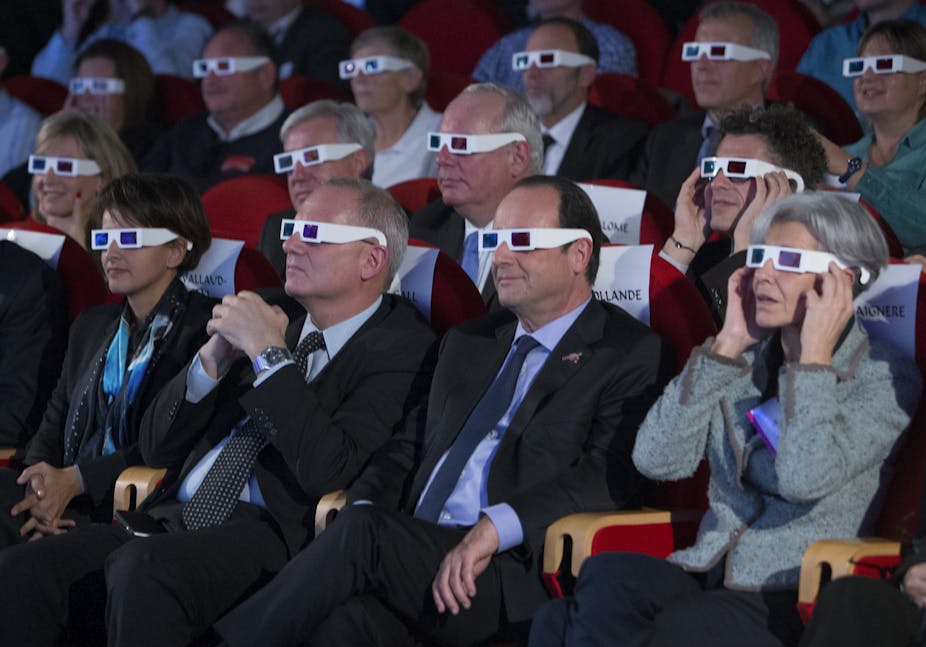The past week saw two significant events in European science. You know about the first one: the triumphant Rosetta mission which landed a probe on a comet. But the other event was less publicised, and much less welcome.
The European Commission has decided to scrap its chief scientific advisor (CSA) role. The current CSA, Professor Anne Glover, tweeted about the incredible achievement of the European Space Agency at the same time as her post was being axed.
I’m a chief scientific advisor myself, for the UK government’s Food Standards Agency, so I understand the demands of the role and the value of such advice. Professor Glover’s dignity and continued enthusiasm for European science highlights her integrity and professionalism, something she has brought to the role throughout her tenure.

The removal of the CSA post was controversial. In the UK much of the media reaction framed it as an attack on science, or a triumph for the green campaigners who wrote to the EC about Glover’s support of genetically modified crops. But this oversimplifies the issues and doesn’t focus on what does now need addressing, in the wake of Juncker’s decision not to have a CSA – what now for science and evidence in European policy?
Just days before the decision, I attended an event celebrating 50 years of UK government CSAs. Attendees heard about a battle during World War II between Lord Cherwell and Henry Tizard, both eminent scientists, over the effectiveness of bombing German civilians. Lord Cherwell said it was the best strategy, but Tizard thought Cherwell’s calculations were hopelessly optimistic – and Tizard turned out to be right. The politically favoured Cherwell had Curchill’s ear however, causing Tizard’s advice to be ignored, and Allied bombers were wasted on unproductive missions.
The government realised scientific advice must be politically independent. Eventually, the ad hoc system favoured by Churchill evolved into an official role that helped create clear blue water between science and politics. The position in Europe was created for similar reasons and thus it is strange how those opposed to it suggest the CSA was not fully capturing the breadth of scientific opinion on certain issues (especially GM crops), suggesting the green campaigners thought the role was political and aimed navigating between opposing views. Of course, this is precisely what it is not. CSAs do gather consensus and the certainty of the evidence – but only among scientists and the evidence they have generated.
There needs to be a robust way to link the external world of science and scientific networks with the internal world of government and policy, which is why most UK government departments have a CSA. Of course, this is just one possible model and there are some objections – green campaigners fear too much power is concentrated with one person, for instance – but CSAs essentially work. They are an important and useful way to ensure the government looks at things through a scientific lens.
The Food Standards Agency is currently considering the safety of what some term “risky” foods such as raw drinking milk. As the CSA, I can offer the scientific evidence relating to such food: how to manage the risks, whether to regulate or offer information on best practice for producers and consumers.
Of course, my authority only extends so far – I’m a chief adviser, not a chief executive. At the 50th anniversary meeting former CSA Lord May put it well: “Science frames a stage for democratic policy making. It must provide the evidence, not the answer”, he explained. “When a problem arises, it’s imperative to group the best available people to get knowledge and emphasise openness and uncertainties.”
This, in a nutshell, is what a CSA is for, and it directly counters the arguments used by people who dislike the concept. The European Commission must address all sorts of complex questions from climate change to space exploration or disease control, and this means different bodies of evidence need to be linked by what Geoff Mulgan calls systems thinking – and this means an independent expert.
People who draft policy look through many lenses and science is only one, albeit an important one. EC president Jean-Claude Juncker needs to quickly identify how he will have the clearest and most accessible advice to assist him in making decisions shaped and informed by science. He isn’t off to a great start – the commission CSA’s office will be replaced by the European Political Strategy Centre which has no scientific advisory role.
Many of the attacks on Juncker’s decision to abolish the post go too far, but I do wonder and worry how he will receive the words of scientific wisdom in a trusted and consensual way. Europe deserves the best possible link between science and government.

